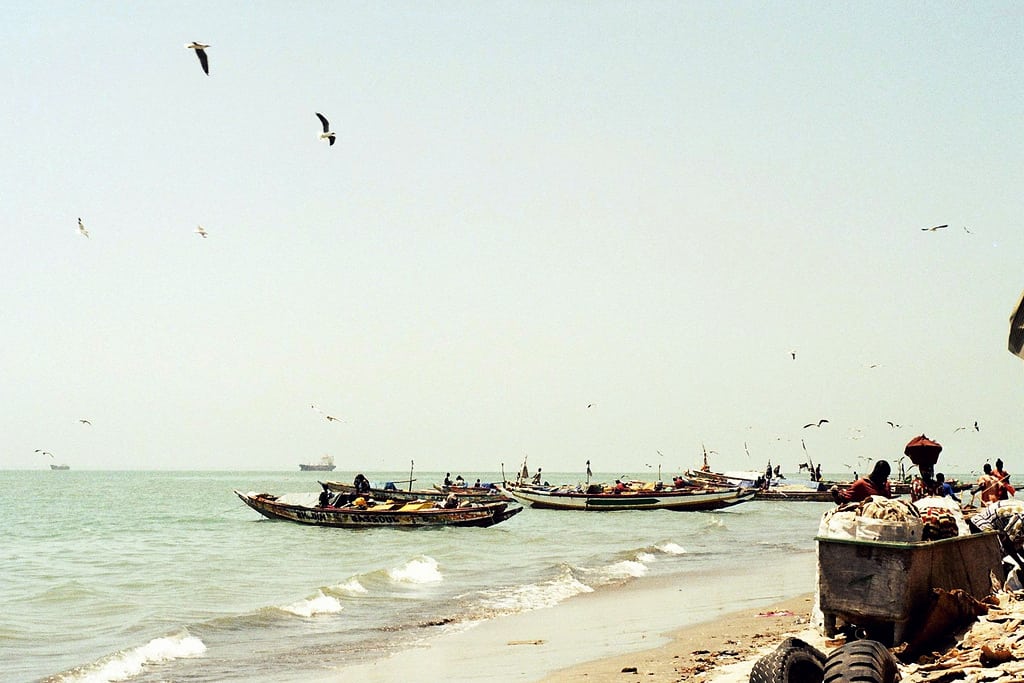Skift Take
Gambia is the new Tunisia for the sun-and-sand seeking European tourists, but like the former North African dictatorship, Gambia hides a brutal regime, even though it is supposedly a democracy.
Behind a row of luxurious resorts overlooking sparkling blue seas in Gambia’s capital, Banjul, lies more meagre lodgings, nicknamed Mile 2 Hotel. A stone’s throw from the white sands that make this west African country the region’s biggest package holiday destination, the mosquito-infested Mile 2 Central Prison houses Gambians jailed for offences including distributing T-shirts without official permission.
Ten of thousands of winter sun-seekers flock to mainland Africa’s smallest country each year, drawn by its stunning beaches, bird-watching and haunting kora music. As the Arab spring pushes holidaymakers from the former north African hotspots – Egypt, Morocco and Tunisia – Gambian tour operators say bookings have increased over the last twelve months. But beneath the package holiday gloss is the acute paranoia of one of Africa’s worst police states.
“Gambia is not a military dictatorship but nobody likes to mention the president’s name,” said a tour guide, who agreed to speak only during a canoe trip on the meandering Gambia river, far from earshot. “Tourism has brought jobs but we cannot even discuss improving the sector.”
Since taking power in a bloodless coup in 1994, president Yahya Jammeh swapped army fatigues for a white gown and sceptre, and rules through a potent mix of state brutality and mysticism, claiming to cure a long list of maladies from Aids to erectile dysfunction. Enfolded by Senegal, which is one of Africa’s most successful democracies, Gambia has some of the continent’s worst human rights records.
Tourism has become an economic lifeline under the regime of a president who urges “every Gambian to be a policeman”.
After years holidaying in Tunisia, Emma, a housewife from Gloucestershire in her 50s, chose Gambia as an alternative this year. “The only thing I know about the president is his portrait is absolutely everywhere, isn’t it? But I’d recommend this place to anyone, you’re absolutely safe here,” she added, sipping a cocktail as jewel-coloured birds darted through baobab trees and peacocks strolled by her hotel pool.
Many of Gambia’s 1.7 million citizens face a much darker reality. Activist and former minister Amadou Scattred Janneh was sentenced to life imprisonment for distributing T-shirts at a rally. He shares a cell with a 24-year-old jailed for creating an online social media profile using the president’s name.
Janneh said that in November last year he saw nine prisoners apparently randomly dragged out of their cells and executed by firing squad.”It was very traumatic. No-one knew what criteria they used,” he said. “One person had already served their term, another had been in jail for eight months, another for 27 years.”
A spokesperson for the European Union, which earmarked €76m (£64.6m) in development aid to Gambia for the period 2008–13, said it had cut funding by 20 per cent following “concerns” about human rights in Gambia.
While Jammeh has fans – literacy and infrastructure have improved over his two decades in charge – his secret police, disguised as everything from gigolos to street hawkers, have arrested people for reacting “indifferently” when his presidential convoy passes.
“When Jammeh passes on the street everybody rushes out to smile and wave, but you cannot say what is in another person’s heart,” said a local journalist, whispering despite loud music playing in a near-empty garden bar. He changed the subject instantly as a gardener approached to trim hibiscus plants nearby.”Initially people considered Jammeh a buffoon and laughable, like they did Idi Amin, but he’s a dangerous buffoon,” said Bakary Darboe, a former vice-president now exiled in England, recalling the notoriously paranoid Ugandan. Former minister Janneh predicted that one day Gambians will have had enough. “Gambia will not have anything like the Tunisia or Libya uprisings, but there’s a real possibility of violent upheaval. Gambians have been pushed to the wall,” said Janneh.
![]()
The Daily Newsletter
Our daily coverage of the global travel industry. Written by editors and analysts from across Skift’s brands.
Have a confidential tip for Skift? Get in touch
Tags: tourism
Photo credit: Banjul in Gambia. Guillaume Colin & Pauline / Flickr.com
